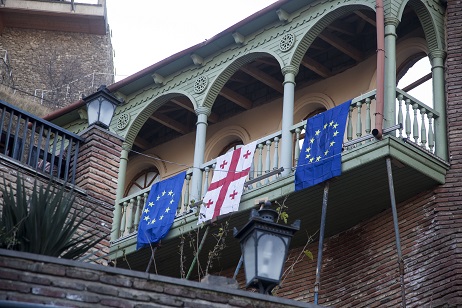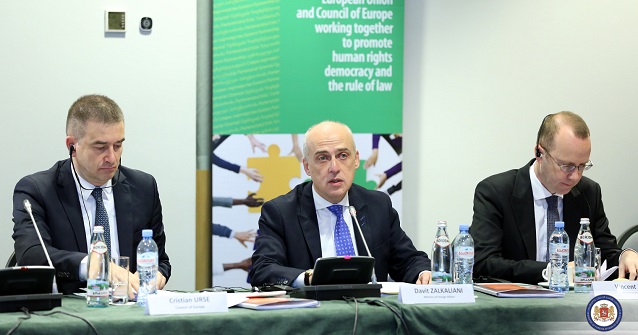EU, Council of Europe present results of joint projects in Georgia

The Delegation of the European Union (EU) to Georgia and the Council of Europe have presented the results of their eight joint projects carried out in 2015-2017 in Georgia.
The total budget of these eight projects was 3.7 million euros. They were funded by the EU (90%) and Council of Europe (10%) and implemented by the Council of Europe.
The country-specific projects have assisted with:
- Application of the European Convention on Human Rights;
- Civic integration of national minorities;
- Strengthening the Georgian Bar Association;
- Improving healthcare in prisons;
- Countering money laundering;
- Promoting freedom, professionalism and pluralism of the media;
- Protecting internet freedom;
- Ensuring free and fair elections.
"Such projects and active co-operation with European institutions are very important for the reform process in Georgia, especially [when it’s] on its way towards European and Euro-Atlantic integration”, said David Zalkaliani, First Deputy Foreign Minister of Georgia who opened the event in Tbilisi today.

Presentation of the results of the EU and Council of Europe's joint projects in Georgia. Photo: Press office of the Ministry of Foreign Affairs of Georgia
Cristian Urse, Head of the Council of Europe Office in Georgia, said that the results of the three years of extensive cooperation with the EU in Georgia are very positive.
"Our Partnership for Good Governance has enabled the Council of Europe and the EU to develop and implement cooperation activities with many national partners – ministries and public institutions, media or law professionals, and NGOs. As a result, the Georgian stakeholders' capacity to upheld and promote human rights, democracy and the rule of law in many fields has been raised and consolidated", he said.
He underlined the readiness of the Council of Europe to continue co-operation with the Georgian authorities and other actors in the years to come.
Vincent Rey, Head of Co-operation at the Delegation of the European Union to Georgia, stressed that these projects and cooperation were based on a shared goal to promote European values in Georgia in line with the EU-Georgia Association Agreement.
"Across the eight areas, we have already recorded tangible results – from improved health in prison to training of law professionals on the case law of the European Court of Human Rights, as well as the training of media regulators”, he said.
Among the results of the country-specific projects are the following:
- More than 1,300 judges, prosecutors and lawyers have been trained on European Human Rights Convention provisions, and the database of the European Court case law in Georgian is to become operational by the end of 2017;
- Georgian Bar Association has received operational support, with electronic examination procedure for conducting the Bar entrance exam having been updated;
- Some 100 journalists have received training on fighting cultural and gender stereotypes, responsible reporting during pre-election campaign and on the mission and role of regional broadcasters;
- Expert advice has been given to the Georgian authorities in developing strategies for improving healthcare quality control in prisons and managing crises in the penitentiary system;
- Legal support was provided in the run-up to the October 2016 parliamentary elections and September 2017 local elections;
- Three sessions of Georgia’s Internet Governance Forum were supported;
- Work to combat money laundering has intensified and will continue in 2018 when a National Risk Assessment is to be finalised.
In April 2014, the EU and the Council of Europe agreed to implement targeted cooperation activities with EU’s Eastern Partnership countries to bring them closer to European standards in the fields of human rights, democracy and the rule of law. In addition to eight country-specific projects, Georgia has also participated in 14 regional initiatives.
 Tweet
Tweet  Share
Share